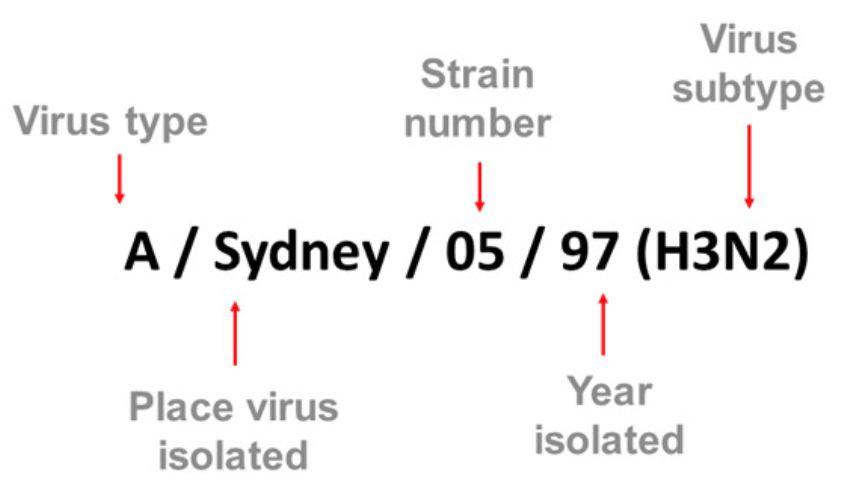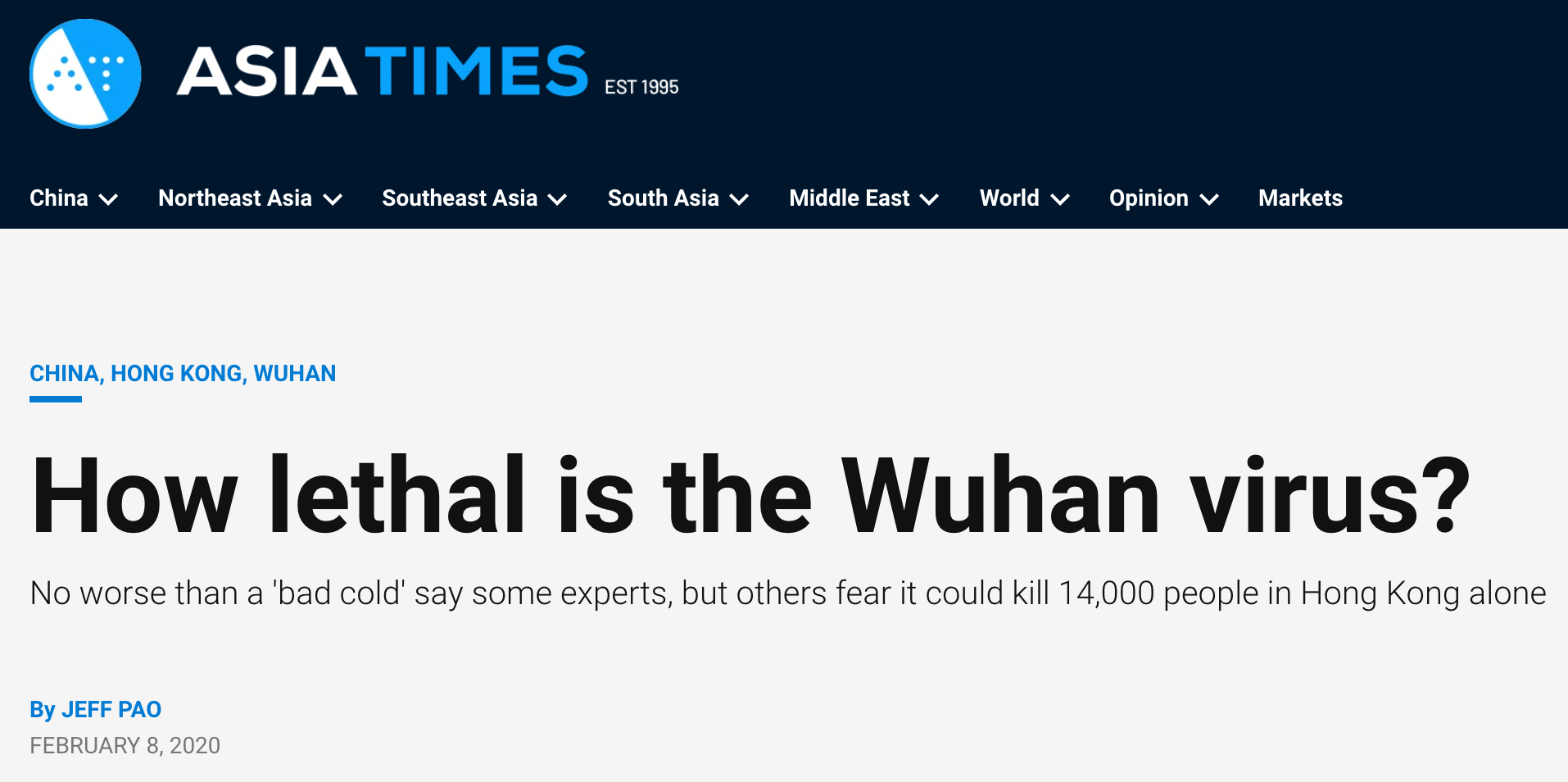
David Gura, an MSNBC anchor I've never heard of, apparently has a TV show called "Up." And, like most cable TV show hosts, he has opinions. He doesn't have any facts to back them up, a sense of perspective, any knowledge of the topic, or a basic grasp of reality, but he does have opinions. And you should know about them.
His latest opinion is that all microbiologists are racists. That's right, you microscope-wielding, white (WHITE!!) coat-wearing, bespectacled geeks. You're a bunch of racists. The evidence is so plainly obvious, he took to Twitter to proclaim it:

Uh huh.
Before we get into the history of naming new diseases, let's stop and see what people in Hong Kong are calling the new virus:
Chinese people are being racist against other Chinese people!
The History of Naming Diseases
Just like anything, when something new is discovered, the discoverer usually gets "first dibs" on naming it. Other times, some initially used name just sticks, and that's the name scientists use going forward. For infectious diseases, it was rather routine for microbiologists to name them after a location, animal, or person. Here are a few examples:
- West Nile
- Lyme (named after a town in Connecticut)
- Spanish flu
- German measles
- Norovirus (named after Norwalk, Ohio)
- Middle East Respiratory Syndrome
- St. Louis encephalitis
- Lassa fever (named after a town in Nigeria)
- Rocky Mountain Spotted Fever
- Ebola (named after a river in Africa)
- Legionnaires' disease (named after the American Legion)
When extremely famous diseases are named after a town in Connecticut or Ohio, then it's absolutely impossible to conclude that a name like "Wuhan virus" is racist. It's simply a matter of longstanding convention.
Now, there have been recent efforts -- led by the World Health Organization -- to change this. The reasons are fairly obvious: It's bad publicity for a town or region to have an infectious disease named after it. It could exacerbate xenophobia. Both of those could, in turn, hurt business and tourism. Amazon and Starbucks may not be too happy if COVID-19 was named "Seattle virus" instead.
So, it makes sense that the WHO is encouraging more "neutral" terms, but it's not necessarily an improvement. Science reports:
“It will certainly lead to boring names and a lot of confusion,” predicts Linfa Wang, an expert on emerging infectious diseases at the Australian Animal Health Laboratory in Geelong. “You should not take political correctness so far that in the end no one is able to distinguish these diseases,” says Christian Drosten, a virologist at the University of Bonn, Germany.
Both experts are correct. Avoiding unique names for new diseases will cause confusion. "Virus #4" is not a name that would inspire anyone to remember what it was.
And as my colleague Dr. Josh Bloom wrote previously, embracing political correctness comes with its own pitfalls: "[A] comprehensible and accurate name might provide a little incentive for countries and their citizens to pay a little more attention to public health." Fair point.
The Science article also quotes virologist Ian Lipkin:
"I don’t see how it will be helpful to eliminate names like monkey pox that provide insights into natural hosts and potential sources of infection."
All Flu Strains Are Racist
There's another problem with accusing the name "Wuhan virus" of being racist. All influenza strains are named after the location in which they were first isolated.

Source: CDC
This isn't done because of racism. It's done because it helps epidemiologists track the viruses. Once again, things could get awfully confusing if influenza strains were named "Flu #3296" and "Flu #9114."
As usual, America's pathological obsession with racism misfires again.




